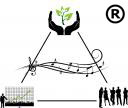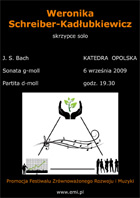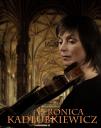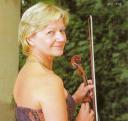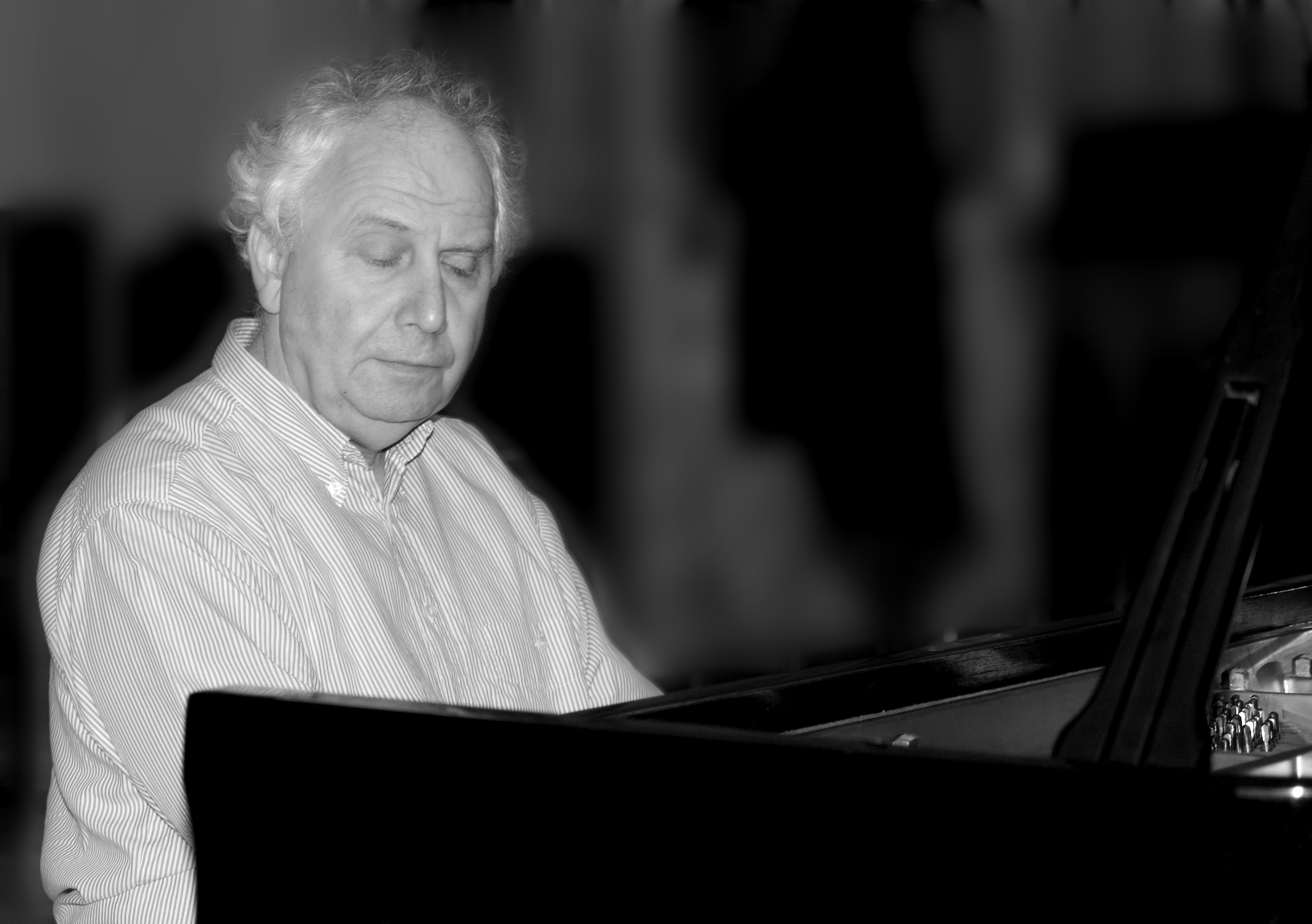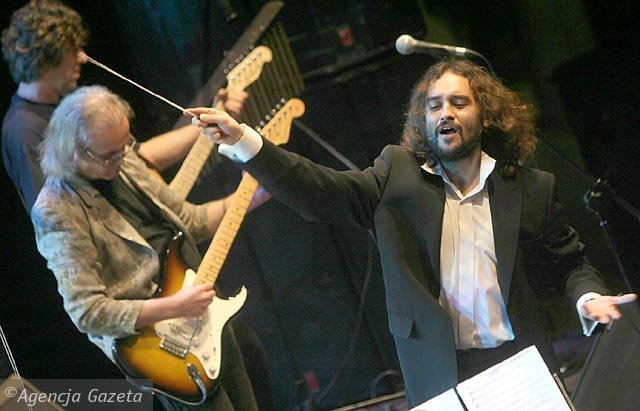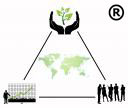Archiwum z miesiąca: November, 2007
Soon, Al Gor and the Intergovernmental Panel on Climate Change (IPCC), established 19 years ago, will receive the Nobel Peace Prize. The Norwegian Nobel Committee justified granting the Prize as follows: “for their efforts to build up and disseminate greater knowledge about man-made climate change, and to lay the foundations for the measures that are needed to counteract such change.”
This fact awakens in me some reflections and memories.
Sixteen years ago, for the first time in my work, I used the IPCC guidelines. At that time I used working materials to the first copy of IPCC Guidelines for National Greenhouse Gas Inventories. In 1993 and 1994, I led the national air emission inventory CORINAIR’90, under the agreement between ATMOTERM S.C. company and the European Commissions Environmental Directorate General (DGXI). It was implementation of a new methodology of air emission inventory-a big challenge for me and for my company involving huge satisfaction from the performed work.
It was a nongovernmental air emission inventory and included 8 groups of gases. Carbon dioxide, methane and nitrous oxide emissions inventory was to be compiled according to the IPCC methodology, other gases – according to the UNECE-CORINAIR methodology. The air emission inventory proved to be the first one comparable to those compiled in other countries. Twenty nine European countries participated in the project. The European Commission regarded Poland CORINAIR’90 as one o the best inventories compiled in Europe. In Opole, on the premises of ATMOTERM S.C. company, I organized a Seminar with participation of representatives of the Ministry of the Environment, Chief Inspectorate for Environmental Protection, state scientific institutes and Polish research units which took up the issues of air emissions at the request of the Ministry of the Environment. During the Seminar I defended the results of the inventory. Upon such approval, I sent the report to the European Commission and my company published it in a book form under the auspices of the Ministry of the Environment. The table with the inventory results was for several years published by the Central Statistical Office. The Ministry used the results of the paper in the Governmental Report for the First Conference of the Parties of the United Nations Framework Convention on Climate Change (COP1). The CORINAIR’90 report received “The Best Product of the Opole Region”award in 1994.
I took part in the UN Task Force On Emissions Inventories and Projections (TFEIP UNECE). During the years 1994 to 1996, within ATMOTERM company, I participated in the Phare project Design of the System of Transferable Emission Permits and Implementation of the Pilot Project in Poland. Some of the solutions in the project suggested by me are implemented in the current European CO2 emission trading. Between 1998 and 2000, within ATMOTERM sp. z o.o. company, I led an international project Phare Topic Link on Air Emission (PTL-AE). Its main objective was analysis of the situation and technical assistance in 13 Central European states seeking accession to the EU, preparation of data from those countries in the format required for the reports of the European Environment Agency (EEA). The work, among others, was related to greenhouse gases and IPCC methodology. It involved cooperation with the EEA, ETC/AE and its network EIONET. In 2000, as a eader of Phare Topic Link on Air Emission, I took part in the meeting of IPCC experts in the India Habitat Centre, New Delhi, where I talked on the subject “Achievements in the field of emission factors.” One of the main goals of my report was to convince the listeners that plants which manufacture the same goods, have different emissions per production unit. At that time, that was a new idea for many experts, not only those from Third World nations. From 2004 to 2006, I worked in the EU project “Support to Air Monitoring,” in Bosnia&Herzegovina, dealing also with the issues of emission inventory, including IPCC methodology. I proved that current statistical data practice involved in EUROSTAT, and consequently, in the Central Statistical Office, should be changed, if we want to have good quality emission estimates at the country level. The principles of statistical data collection do not keep up with changes in economy. The development of small and medium-sized businesses did not bring parallel changes in the statistical system.
Reduction of CO2 emissions is one of the main, joint efforts in the EU and may prove to stimulate new technologies and behaviors.
The next conference of the countries which are the signatories of the United Nations Framework Convention on Climate Change UNFCCC (COP), will be held in December, this time in Bali.
In 2007, Nobel Peace Prize winner organized Live Earth concerts, a series of musical events for the purpose of drawing more attention to the greenhouse effect and growing CO2 emissions into the atmosphere. Global warming will contribute to even more intensive heat waves and devastating droughts in some regions (e.g. in southern Europe or northern Africa), and floods in other areas (like northern Europe or southeast Asia), as well as melting glaciers, rising sea levels, stronger and more frequent gales, thunderstorms or tornadoes. The IPCC Panel confirmed with over 90 percent probability that by developing industry we cause overheating the Earth.
The press reveals Al Gore’s high bills for electricity suggesting that the Nobel winner should probably apply the principle “physician, heal thyself” before anything else… But do the media justify such conclusions? No information is provided about power consumption per surface area unit of the house, office, or person. Providing comparable information is important not only at the level of negotiations between two countries!
Since 2007, apart from consulting, I have been organizing and managing artistic events, like concerts. For some time, I have been planning a series of partly oral, partly musical events for promotion of sustainable development.
Kategoria: CO2 / Zmiana klimatu, Articles and reportage | Komentarze wył. »
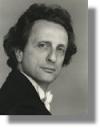 Andrea Passigli studied in Italy and in the United States. He graduated cum laude from the Conservatory L. Cherubini in Florence under the guidance of Maria Tipo and participated in the Marlboro Music Festival at the invitation of Rudolf Serkin, whose teaching had a fundamental role in his musical development, which is mainly directed towards Viennese classicism. Important points of reference in his education where also his meetings since childhood with Pablo Casals, Nikita Magaloff.. Mr. Passigli, who has constant interest for chamber music and Lied, has performed in recitals and concertos in Italy, U.S.A, Austria, England, Holland, Russia, Rumania, Yugoslavia, Hungary and Poland. He has recorded an album of 2CD with music for piano solo by Schubert, edited by fonè, a CD dedicated to Lieder on texts by Heine with the baritone Leonardo Wolovsky, and one on French impressionism with flutist Alexander Duisberg edited by Ema Records. He is Professor of Piano at the Conservatory G. Frescobaldi in Ferrara.
Andrea Passigli studied in Italy and in the United States. He graduated cum laude from the Conservatory L. Cherubini in Florence under the guidance of Maria Tipo and participated in the Marlboro Music Festival at the invitation of Rudolf Serkin, whose teaching had a fundamental role in his musical development, which is mainly directed towards Viennese classicism. Important points of reference in his education where also his meetings since childhood with Pablo Casals, Nikita Magaloff.. Mr. Passigli, who has constant interest for chamber music and Lied, has performed in recitals and concertos in Italy, U.S.A, Austria, England, Holland, Russia, Rumania, Yugoslavia, Hungary and Poland. He has recorded an album of 2CD with music for piano solo by Schubert, edited by fonè, a CD dedicated to Lieder on texts by Heine with the baritone Leonardo Wolovsky, and one on French impressionism with flutist Alexander Duisberg edited by Ema Records. He is Professor of Piano at the Conservatory G. Frescobaldi in Ferrara.
Kategoria: Andrea Passigli | Komentarze wył. »
| “…..From the first phrases of the Mozart Sonata….Andrea Passigli showed the security of a first rate musical temperament: his extremely clear phrasing, inspired by the noble calm of great Mozart interpreters like Walter and Fisher with his ” cantabile” always expanded and cordial but at the same time rigorously accentuated. These gifts that one cannot acquire, were demonstrated by the pianist in the great pages of Chopin, and with particular congeniality in the Schubert Sonata….”.Giorgio Pestelli, LA STAMPA – Torino“….Passigli plays with musicianship, understands what he plays, knows how to highlight the focal points of the various works with a striving for perfection that is admirable….”.Leonardo Pinzauti, LA NAZIONE – Firenze“…Andrea Passigli is a secure and incisive artist who, guided by nobility and taste, instinctively rejects unnecessary effects and forced expressiveness. Instead, through his interpretation, he aims at a continuous tension of the phrasing which becomes a synthesis both direct and dramatic……”.Giuseppe Rossi, PAESE SERA – Firenze“….What is striking about Mr. Passigli in general is his ability to move the audience from preoccupation with the pianist to concentration on the music itself, the true sign of a worthy performer…”.Luise Forsyth INTERNATIONAL DAILY NEWS
“…The interpretative line chosen by Andrea Passigli, a pianist with an Italian-American background, is rather clear and tends to conserve the simple and intimate image of Schubert tied to the tradition… The music develops under the sign of naturalness… significant is his respect for Schubert’s dictate, apparent in the extreme care with which he plays what is written on the page, and above all – an extremely rare case -in observing all the written repeats… The musical line develops with absolute precision and from this it draws its strength…” G.Moroni AUDIO REVIEW “…The performer allows himself to be taken by the ecstasy of sound, but without ever losing sight of the movement’s formal aspects…Particularly successful are the second and the third Moments Musicaux and the first of the Impromptus. It is the second time that I express a positive judgement on an Italian pianist’s achievement with Schubert…” Francesco Lo Cascio CD CLASSICA “…Beethoven, Bartok, Schumann: three distant musical worlds that Passigli outlined with an intelligent interpretation, always stylistically conscious and at the same time without calculated schematism….”. Gilberto Costa, PAESE SERA, Firenze “…..Mr. Passigli played putting emphasis, especially in Bach, on thoughtful moments of subtle intimacy, with a gentle and at times rich touch, and on clear differences in the dynamic ranges. In Schumann’s Carnaval, the complex elements of the musical operation were fully evidenced , in an inspired and meditated performance, at times impetuous, that perfectly highlighted the spirit of the piece…..”. LA NAZIONE, Arezzo “….Mr. Passigli gives us, intact and fascinating, Schubert’s rediscovery of expanding to infinity those essential melodic lines, the sublime “thematic” hints, which are symptoms of an unrepeatable creative inspiration….” Raffaele Fresu, IL RESTO DEL CARLINO – Ferrara “….His platform demeanour was serious, confident , and self-possessed and….he demonstrated firm command of his fingers and the keyboard in a demanding program…”. Alan Kayes, EAST HAMPTON STAR – New York |
Kategoria: Andrea Passigli | Komentarze wył. »
Wydawca: foné 97F 01/02
Franz Schubert – solo fortepianowe Andrea Passigli
CD I Sonata B-dur D960
CD II 4 Impromptus D899, 6 Moments Musicaux
Wydawca: EMA RECORDS DD60001
HEINE LIEDER Leonardo Wolovsky – baryton
Andrea Passigli – fortepian
Schubert, Schuman, Wieck, Mendelssohn, Liszt, Brahms, Grieg
Wydawca: EMA RECORDS DDD70013
Aleksander Duisberg – flet
Andrea Passigli – fortepian
Fauré, Ravel, Debussie, Bartók
Kategoria: Andrea Passigli | Komentarze wył. »
PROGRAM 1 FRANCISZEK SCHUBERT
- 4 IMPROMTUS op. 90 . D 899 ( 1827)
1797 – 1828
Allegro molto moderato
Allegro Andante
Allegretto
albo
- 6 MOMENTS MUSICAUX OP.94 D780
1) C dur – moderato
2) As dur – Andantino
3) f moll – Allegro moderato
4) cis moll – Moderato 5) F minor – Allegro vivace 6) A flat major – Allegretto
albo
- 12 LAENDER op. 171
3 KLAVIERSTUCKE OP. POSTH.
n. 1 es moll – allegro assai
n. 2 Es dur – allegretto
n. 3 C dur – allegro
———————————————————————
- SONATA B DUR OP. POST. D 960 ( 1828 )
Molto moderato
Andante sostenuto
Scherzo: allegro vivace con delicatezza Rondò: allegro ma non troppo
PROGRAM 2
BELA BARTOK
- TRZY RONDA NA TEMATY LUDOWE (1916-1927)
1- Andante
2- Vivacissimo
3- Allegro molto ( 8 min.) 15 WĘGIERSKICH PIESNI CHLOPSKICH (1914-1918)¼br> -Quattro antiche melodie
-Scherzo
-Ballata
-Antiche melodie di danza ( 13 min.) - SUITA OP. 14 (1916)
-Allegretto
-Scherzo
-Allegro molto
-Sostenuto
( 8 min.)
————————————-
- CZTERY PIEŚNI POGRZEBOWE OP.8/A (1909-1910)
-Adagio
-Andante
-Poco lento
-Assai andante (10 min.)SONATA ( 1926 )
-Allegro moderato
-Sostenuto e pesante
-Allegro molto (15 min.)
PROGRAM 3
- W.A. MOZART, FANTAZJA d moll
- L.V.BEETHOVEN, SONATA C DUR OP. 53 ( WALDSTEIN )
———————————————
- F. CHOPIN,
- 2 ETIUDY OP. 25
- BALLADA g moll. OP. 23
- FANTAZJA f moll. OP. 49
PROGRAM 4
- A. SCARLATTI, TRZY SONATY.
- S. BACH, PARTITA N. 4 D DUR
—————————————————-
- J.BRAHMS, VARIATIONS AND FUGUE ON A THEME BY HAENDEL
PROGRAM 5
W.A. MOZART
- SONATA IN F MAJOR K. 280
SONATA IN B FLAT MAJOR K . 281
——————————————-
C. DEBUSSY
- DEUX ARABESQUES albo
2 PRELUDES FROM BOOK 1
Le vent dans la plaine
La Cathedral Engloutie
CHILDREN’S CORNER SUITE
PROGRAM 6
- L.V. BEETHOVEN, 6 BAGATELLES OP. 126
albo - F.J.HAYDN, SONATA IN E FLAT MAJOR HOB XVI:52
albo
SONATA IN D MAJOR HOB XVI:19
- L.V.BEETHOVEN, SONATA IN A FLAT MAJOR OP. 110
——————————————————
- R.SCHUMANN, CARNAVAL OP. 9
PROGRAM 7
- R. SCHUMANN, PAPILLONS OP. 2
WALDSCENEN OP. 82
————————————————————
- R. SCHUMANN, CARNAVAL OP. 9
PROGRAM 8
- B.BARTOK, SUITE OP. 14
- C. DEBUSSY, DEUX ARABESQUES
- A. SKRIABIN, ETUDE OP. 8 N. 12
ETUDE OP. 65 N.1
5 PRELUDES OP. 74
——————————————————–
- R. SCHUMANN, CARNAVAL OP. 9
Kategoria: Andrea Passigli | Komentarze wył. »
Pianista Andrea Passigli studiował we Włoszech i USA. Ukonczyl z najwyzszym odznaczeniem Konserwatorium L. Cherubini we Florencji w klasie Marii Tipo. Na zaproszenie Rudolfa Serkina uczestniczył w Marlboro Music Festival. Rudolf Serkin miał duży wpływ na muzyczny rozwój artysty i jego szczegolne zainteresowanie wiedeńskim klasycyzmem. Silny wpływ na osobowość artysty mieli również Pablo Casals i Nikita Magaloff, z którymi spotykał się od dzieciństwa. Andrea Passigli jest solistą, kameralistą i posiada glebka znajomosc repertuaru Lieder. Grał recitale i koncerty we Włoszech, USA, Austrii, Angli, Holandii, Rosji, Rumunii, Jugosławii, na Węgrzech i w Polsce. Nagrał podwójny album z muzyką na fortepian solo Schuberta wydany przez “foné” oraz CD “Ema Records” z flecistą Alexandrem Duisbergiem, poświęcony francuskiemu impresjonizmowi, jak również CD z barytonem Leonardo Wolovsky z Lieder do tekstow Heinego. Andrea Passigli jest profesorem fortepianu w Konserwatorium G. Frescobaldi w Ferrarze we Włoszech.
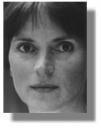 Skrzypaczka Weronika Kadłubkiewicz jest absolwentką Wyższej Szkoły Muzycznej w Warszawie w klasie Krzysztofa Jakowicza. Kontynuowała studia z Henrykiem Szeryngiem i Romanem Totenbergiem w USA. Solistka wielu orkiestr w Polsce, USA i Europie, koncertmistrz New Hampshire Symphony, Orchesta Filarmonica de Gran Canaria i Polskiej Orkiestry Kameralnej. Grała również z Boston Symphony i Orpheus Chamber Orchestra. Dwukrotnie uczestniczyła w Sommerkurse w Darmstadt, a na zaproszenie Lejarena Hillera była rezydentką Creative Associates w Buffalo NY. Występowała na scenach w Polsce, Hiszpanii, Włoszech, Szwecji, Francji, Niemczech, Szwajcarii, Kanadzie i USA. Utalentowana wykonawczyni skrzypcowej muzyki współczesnej ma na swoim koncie prawykonania utworów, z których wiele zostało napisanych specjalnie dla niej. Weronika Kadłubkiewicz brała udział w festiwalach: Warszwska Jesień, Marlboro Music Festival, Bach Aria, Monadnock Music i inne. Prowadziła klasę skrzypiec i muzyki kameralnej w Amherst College, University of Massachusetts i w Smith College. Nagrała płyty dla firm Gasparo i CRI. Po dwudziestu latach pobytu w Stanach Zjednoczonych przeniosła się do Paryża.
Skrzypaczka Weronika Kadłubkiewicz jest absolwentką Wyższej Szkoły Muzycznej w Warszawie w klasie Krzysztofa Jakowicza. Kontynuowała studia z Henrykiem Szeryngiem i Romanem Totenbergiem w USA. Solistka wielu orkiestr w Polsce, USA i Europie, koncertmistrz New Hampshire Symphony, Orchesta Filarmonica de Gran Canaria i Polskiej Orkiestry Kameralnej. Grała również z Boston Symphony i Orpheus Chamber Orchestra. Dwukrotnie uczestniczyła w Sommerkurse w Darmstadt, a na zaproszenie Lejarena Hillera była rezydentką Creative Associates w Buffalo NY. Występowała na scenach w Polsce, Hiszpanii, Włoszech, Szwecji, Francji, Niemczech, Szwajcarii, Kanadzie i USA. Utalentowana wykonawczyni skrzypcowej muzyki współczesnej ma na swoim koncie prawykonania utworów, z których wiele zostało napisanych specjalnie dla niej. Weronika Kadłubkiewicz brała udział w festiwalach: Warszwska Jesień, Marlboro Music Festival, Bach Aria, Monadnock Music i inne. Prowadziła klasę skrzypiec i muzyki kameralnej w Amherst College, University of Massachusetts i w Smith College. Nagrała płyty dla firm Gasparo i CRI. Po dwudziestu latach pobytu w Stanach Zjednoczonych przeniosła się do Paryża.
Kategoria: A.Passigli & V.Kadlubkiewicz | Komentarze wył. »
PROGRAM 1
******************************************
PROGRAMMA 2
*************************************************
PROGRAMMA 3 La Danza fra 800 e 900 S.Prokofiev da Romeo e Giulietta: M.Magin: Kujawiak P.Sarasate: Romanza Andalusa M. de Falla: Danza spagnola C.Saint-Saens: Capriccio su uno Studio in forma di Walzer <<<<<<<<<<<<<<<<<<<<<<<<<>>>>>>>>>>>>>>>>>>>>>>>>>>>> F. Chopin: Polonaise in do diesis min. op.26 n.1 (pianoforte solo) H.Wieniawski: Polonaise in la maggiore |
Kategoria: A.Passigli & V.Kadlubkiewicz | Komentarze wył. »
